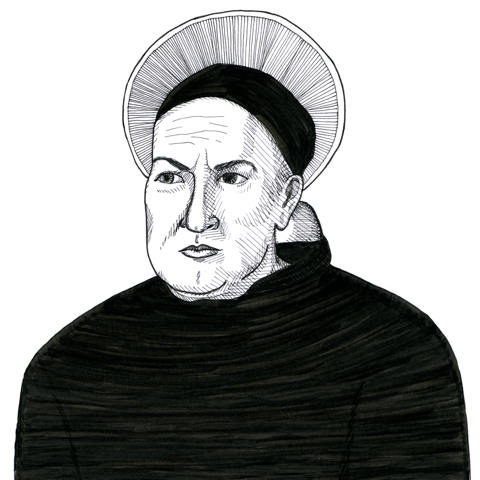
Thomas Aquinas on why the law should not punish imperfect men for practising vices which do not harm others (1274)
Found in: Aquinas Ethicus: or, the Moral Teaching of St. Thomas, vol. 1
The Italian Dominican theologian Saint Thomas Aquinas (1225-1275) argues the because the majority of people are weak and not perfect, human laws should not punish individuals for engaging in vice unless it causes harm to others:
Law
(A) human law is laid down for a multitude, the majority of whom consists of men not perfect in virtue. And therefore not all the vices from which the virtuous abstain are prohibited by human law, but only those graver excesses from which it is possible for the majority of the multitude to abstain, and especially those excesses which are to the hurt of other men, without the prohibition of which human society could not be maintained, as murder, theft, and the like.